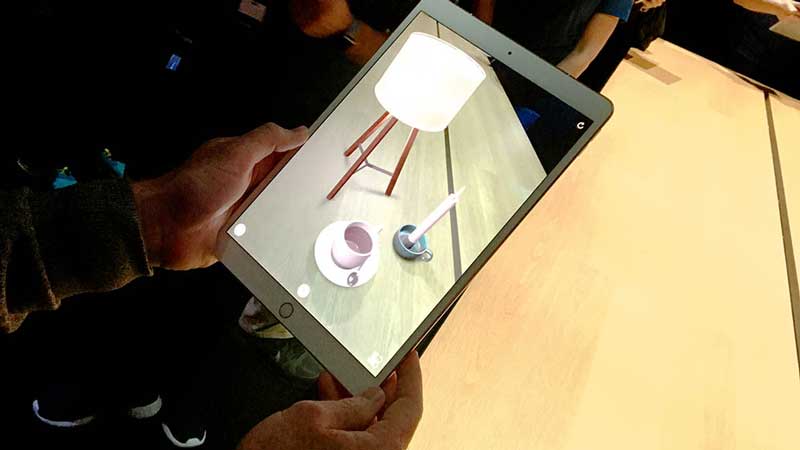 You are not new to Augmented Reality (AR), are you? There has been so much hype around this technology and why not! It efficiently manages to blur the thin line between real world and virtual realm.
You are not new to Augmented Reality (AR), are you? There has been so much hype around this technology and why not! It efficiently manages to blur the thin line between real world and virtual realm.
And guess what! Now you can see your wildest dreams with your eyes kept wide open, just via the lens of your smartphone camera or your AR glasses. Yes! Apple ARKit has made it possible.
Did I hear you say that other tech giants already have been in the AR space for much longer? Absolutely, but with ARKit, Apple has pushed AR very close to mainstream for mass adoption.
If you are finding it hard to believe, just watch this video from Code & Coffee to understand, with ARKit, how easy it is to interact with virtual content:
Video Source – https://www.youtube.com
How does the ARKit work?
After watching the video, you might be wondering how ARKit is able to sense the world around it so accurately! What techniques have been utilized to make this possible! Let us take a look:
Tracking surroundings accurately
Well, it uses the technique called Visual Inertial Odometry (VIO) to fuse the camera sensor data with CoreMotion data.
The device (iPhone or iPad) then utilizes these two inputs to sense how to move within a room with a very high degree of accuracy in the absence of additional calibration.
Understanding Scene
Your iPhone or iPad are able to analyze the scene presented by the camera view with the aid of ARKit. It can effectively detect horizontal planes such as tables, floors in the room. Furthermore, it can also track and place objects on top of smaller feature points.
Estimating Light
ARKit utilizes the device’s camera sensor in order to estimate the total amount of light available in a particular scene and accordingly applies the right amount of light to virtual objects.
How does it deliver breakthrough performance?
ARKit runs on high performance hardware like Apple A9 and A10 processors that enables it to understand the scene with high speed and empowers you to build virtual content next to or on top of real-world objects.
What ARKit has in store for developers?
Attention developers! ARKit brings welcome news along; you can straight away jump into building compelling experiences with Augmented Reality App Development without bothering about your knowledge of computer vision technology and physics algorithm.
Moreover, Apple told in WWDC 2017 that iOS app development experts can leverage optimizations of ARKit for frameworks like Metal and SceneKit, and third-party tools viz. Unity and Unreal Engine as well.
How ARKit can fit within your business model?
Since the launch of beta version of ARKit developers have been experimenting with ARKit on different potential use cases for AR.
-
AR is already revolutionizing the ecommerce/retail sector by allowing you to put the virtual objects just beside your physical objects.
-
Furniture giant IKEA has been leveraging AR to allow their customers to redesign their living room and ARKit has opened the world with endless possibilities for their users.
-
In educational sector, ARKit can be used for creating immersive learning experiences. The classroom can be transformed into a laboratory and students can see each object being taught, essentially from any angle.
Want to give wings to your imagination?
Anything is possible now as ARKit has made it utterly simple to build great experiences with virtual content in the real world. Now you too can bring your imagination to life, just talk to our developers!
Have you already tried your hand on ARKit? We would love to hear your experiences; please leave your comments below.



This is really a great article about ARKIT. Hopefully this will be much more developed in near future.
Hey, thank you for your comment. We are much motivated to write better for readers like you. Yes, ARKIT is evolving at a fast pace and soon we will see it venturing in many more industries.
Follow us here for regular updates:
https://twitter.com/Helios_Solution
https://www.facebook.com/heliosITCo/
https://www.linkedin.com/company/helios-solutions